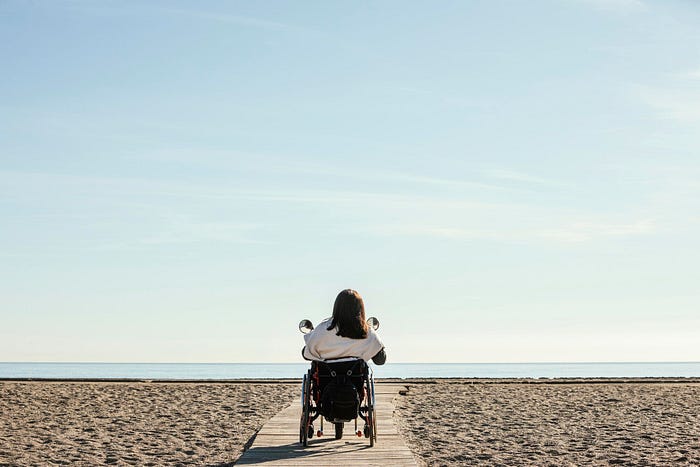Ever found yourself pondering the possibility of using your NDIS funds to indulge in a stay at a hotel, caravan park, or maybe even an Airbnb for a quick holiday or short-term accommodation (STA)? Well, before delving into the realm of utilizing your Core Support funds for NDIS Holiday Accommodation or seeking assistance with STA, a multitude of factors awaits your consideration.
Here at Safelane Healthcare, we’re no strangers to the myriad questions swirling around NDIS Short Term Accommodation (STA) and Holiday Accommodation. Have you ever wondered how to access it, whether NDIS funds extend their coverage to such stays, how to seamlessly incorporate it into your plan, or the specific circumstances where it can (or cannot) be put to use? Look no further! Below unfolds our comprehensive guide, designed to take you on a journey through the entire process and shed light on what it’s all about. Curiosity piqued? Let’s embark on this exploration together.
Does the NDIS Fund Holiday Accommodation?
The NDIS usually doesn’t fund vacation or Holiday Accommodation, but you might be able to utilize your funding for the usual NDIS supports and services you require while on holiday if they directly relate to your disability.
The funding provided to a Person with Disability (PWD) is intended to cover any necessary support while on vacation. Generally, expenses like accommodation, meals, entertainment, and other typical holiday-related costs are not funded since they’re unlikely to meet the NDIS reasonable and necessary criteria. Feel free to get in touch with us to discuss how we can make your holiday more accessible.
What Does the NDIS Pay For?
- Support worker: When you’re on the move, you might require your support worker to join you throughout your journey. While they may not be offering continuous assistance, they’ll be away from home and could have specific expectations regarding coverage. This might result in a pricey bill, so it’s advisable to clarify all these details and agree on a daily rate before making NDIS Holiday Accommodation arrangements.
- Equipment: If you need to rent portable equipment while on vacation, you might be eligible to claim it through your NDIS plan. Discuss your goals with your Support Coordinator or Plan Manager, and they’ll assess whether you can make an NDIS Holiday Accommodation claim or not.
- Transport and NDIS Holiday Accommodation: If your transport and NDIS Holiday Accommodation expenses are substantially higher due to your disability, you might be able to claim the difference between the cost of a standard taxi or room and an accessible taxi or room. The same applies if you have to hire an accessible vehicle for your NDIS Holiday Accommodation.
How NDIS Holiday Funding Works: Here Are Some Examples!
To provide some clarity, here are a few examples of how the payments work for NDIS Holiday Accommodation.
Example 1: NDIS Holiday Accommodation With Minimal Assistance
Sarah Johnson wants to go to the Gold Coast, and the cost of the all-inclusive holiday is $5000 for 1 week, from Friday to Saturday. Sarah is quite independent and requires minimal assistance; her support needs would be classified as a ratio of 1 carer to 4 clients.
Sarah has transitioned to the NDIS and wants to know how much they will pay and how much she will have to cover privately. To figure this out, All Access Holidays will tally up how much care and support Sarah requires in terms of hours and then invoice the NDIA accordingly.
For Sarah’s care needs, the total invoiced to the NDIA would be $2,083. This means that Sarah would have the remaining amount of $2,917 to pay privately. On our holidays, this fee includes NDIS Holiday Accommodation, food, entertainment, and transport, excluding flights.
Example 2: NDIS Holiday Accommodation With More Support
Alex Davis would also like to go to the Gold Coast. Alex requires some help with personal care, dressing, and assistance with eating. Alex’s support needs would be classified as 1 Carer to 2 clients (1:2).
Alex would like to know how much the NDIS will cover for the holiday and how much they will need to pay personally.
As in Sarah’s case, All Access Holidays will tally up how much care and support Alex requires in terms of hours in line with the NDIS price guide. For Alex’s care needs, the total invoiced to the NDIA would be $3,420, leaving the outstanding amount for Alex to cover, including NDIS Holiday Accommodation.
Read the detailed post here:
NDIS Holiday Accommodation vs STA: A Guide From Start To Finish

How Does NDIS Holiday Accommodation Differ From STA?
You may be confused about the difference between STA and holidays, but you’re not alone. The NDIS covers “reasonable and necessary” support, but not food, accommodation, and entertainment. Hence, on vacation, only necessary care and support are covered, while other costs must be paid privately. The NDIS does not cover flights; they must be paid for separately.
It’s important to understand that every individual has unique support requirements. The amount that All Access Holidays charges the NDIS for support needs may vary based on the level of support required by a client. This can significantly affect the amount you have to pay towards your holiday expenses.
Here are two examples of NDIS Holiday Accommodation. The first person wants to stay in an Airbnb for five nights, needing a wheelchair and a support worker. They can’t claim for flights, accommodation, food, or activities. The second person plans to stay in a hotel with family for three nights, just needing a wheelchair and cannot even claim for support worker.
What is STA?
A participant stays in a group home facility for 5 days where they require 24-hour care, including accommodation, meals, and group activities. A participant on a Harry Potter-themed trip purchased through an experienced company. The travel, accommodation, activities, and meals costs are covered and listed in the plan goals.
Short-term accommodations, including respites, are extended to participants who need accommodations — a home away from home — for a short period. The NDIS funding includes all expenses in a 24-hour period, which may cover: accommodation, personal care, food, and other services agreed upon by the participant and the provider. The NDIS can support up to 28 days of Short Term Accommodation per calendar year. This can be used flexibly, whether a block of up to 14 days of stay or a weekend per month. If a participant wants to access more than 28 days of STA per calendar year or a stay with more than 14 consecutive days, he/she must seek approval from the NDIS or your Local Area Coordinator (LAC).
Explore NDIS Short-Term Accommodation and Respite Care in this useful guide. Learn everything you need to know about these services and how they can benefit you.
Connect With the Right Provider for NDIS Holiday Accommodation or STA Assistance
For NDIS Holidays: Safelane Healthcare focuses on a customer’s needs and preferences, evaluates their NDIS funding, and then calculates the cost of the vacation. Before a client joins us for a holiday, we’ll always provide a no-obligation quote that breaks down the holiday’s price into two parts: the expense the client will need to cover and the amount Safelane Healthcare will bill the NDIA for the care provided. Contact us today to get the quote for your next holidays or give us a ring on 13 0010 9333.

For STA or Respite: When organizing your Short Term Accommodation, including Respite, it’s crucial to keep in mind what is and isn’t funded. If you require travelling with a support worker, this is an example of what can be funded.
Safelane Healthcare is a professional service provider that will assist you in having the best STA experience. Throughout your holidays, you can also expect assistance with personal activities, the development of daily life skills, and social and community participation. We can help with transportation to and from your home, as well as travelling within a group to coordinate all social and recreational activities. If you’re unsure about what’s covered under STA, or if you can get access to it, just give us a shout. You can contact us by filling out this form or calling 13 0010 9333 between 9 am to 5 pm Monday to Friday.
What if You Need Support for Long-Term Arrangements?
In these situations, a participant might need to check out other choices like Supported Independent Living or Medium-Term Accommodation.
Wrap Up
In summary, navigating NDIS Holiday Accommodation and Short-Term Accommodation (STA) requires careful consideration of funding parameters. Although the NDIS typically doesn’t cover traditional holiday expenses like accommodation and meals, funds can be utilized for specific disability-related support needs during vacations.
NDIS funding for holidays includes support workers, equipment rental, and transport directly related to disability needs. The above two examples demonstrate how NDIS can contribute to holiday costs based on required assistance levels. The crucial distinction between NDIS Holiday Accommodation and STA lies in the comprehensiveness of support. NDIS Holiday Accommodation provides limited support, while STA offers a broader range of services, including accommodation, personal care, meals, and activities for up to 28 days per calendar year.


No comments yet